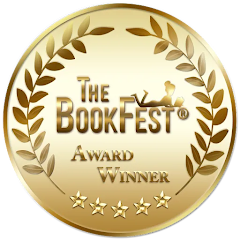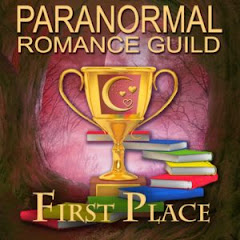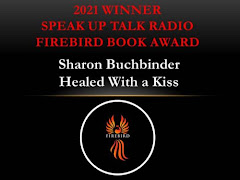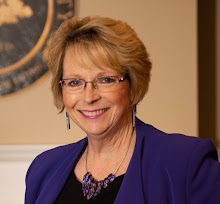Today we have Sorchia DuBois, author of Just Like Gravity with us to tell us about her writing.
What made you decide
to be an author?
I can’t remember ever wanting to be anything else—except
maybe a pirate or Robin Hood. But I had
to make a living and I believed the story that you can’t make a living writing
so I got a degree in education instead. I taught school for an interminably long time,
thinking I would write just as soon as I got this stack of papers graded or got
that lesson plan finished. And I had
kids and planned to write when they got old enough to leave me alone. I made a
lot of excuses and procrastinated for all I was worth. Finally, I started being honest with myself.
The real reason I didn’t take the plunge was because of fear—fear I wouldn’t be
good enough and fear nobody would be interested in anything I wrote about. At last, I got enough years under my belt to
realize it didn’t matter one little whit what anybody thought. That’s
when I started writing Just Like Gravity.
What do you like best about being a writer?
What do you like the least?
The best thing is the writing itself. There is nothing better than reading over
something you just wrote and feeling like you got it right. Next, of course,
you want to show it to someone else to see if they get it. When they do, it is just an extraordinary
feeling. To see it in print and to find that people enjoy it and want more is
intoxicating.
The thing I like least is the marketing part. I enjoy bits of it, but I’m just not a
wonderful sales person.
How do you think your life experiences have prepared you for writing?
Everybody has a story, a
unique outlook, a perspective nobody else has thought of. For Just
Like Gravity and for the next three-book series about Zoraida Grey, I tap
into my lifelong interest in the occult and all things gothic. I even went so far as to do a past life
regression since that is a big part of Just
Like Gravity. I wanted to make sure
I got it right. It turns out hypnotism isn’t at all what Hollywood has led us
to believe.
One of my goals as a
writer is to show different kinds of spirituality. I grew up in the Bible belt and I heard a lot
about religion. I’m interested in myths
and the beliefs and practices of ancient cultures. I work that interest into my writing to show
how our culture is in some ways shifting back to those old ideas and that isn’t
a bad thing. I think many people
misunderstand how those old beliefs play a part in modern religion and
spirituality.
I live in a beautiful part of the country and
I’ve seen the quality of life go down here because of ignorance. People clear cut hillsides and wonder why the
river gets muddy and the hills erode.
They pollute the rivers and wonder why the drinking water has e-coli in
it. I try to make my writing
Earth-friendly and to show why that has to be a priority. Education is the only
way and not everybody reads textbooks. I think fiction can be more enlightening
than any textbook.
My books are set in
Scotland or have a Celtic flavor wound into them somewhere. I go to lots of Scottish festivals and I’ve
gotten involved with the American branch of my clan, the Rosses. In the name of
research, I’ve gone to whisky tastings, pub tents (for the music, of course),
sheep herding demonstrations, sword fighting demonstrations, and a great number
of dances and highland games. Writing Just
Like Gravity changed my entire life by adding these events and
affiliations.
Have you ever felt as if you were being dictated to while you wrote a
book--as if the words came of their own accord? If yes, which book did that
happen with?
Absolutely. I think all artists are conduits. We hear the
voices and see the pictures and try to reproduce them—always falling short of
that divine idea in our heads, but trying nevertheless to share the
visions. I don’t pretend to know how or
why or what, but I know something’s going on out there.
You’ve written one novel and are working on a second novel. What’s your
favorite time management tip?
Shut off FaceBook,
Twitter, every social media, and the phone.
Don’t get distracted by all the people who think they have a claim on
your time. For a few hours every day,
let them wait. I like to have the Internet on in case I need to look up a quick
fact or search for a word, but I do not answer messages or calls during my
writing time. It is sacred. I have the
luxury of an online job so I can set my own work hours. I do my writing first
and then work for somebody else.
Are you a plotter or a pantser, i.e., do you outline your books ahead
of time or are you an “organic” writer?
I have a sketchy plan of
the complications and conflicts and the emotions I want to play on. Then I do
character charts—lots of questions about my characters. Usually as I answer the
questions, I develop the plot at the same time.
I actually use a tarot deck to help me fill out the charts. Some things I know about my characters but if
I get to a question I’m not sure about, I pull a card. I think this keeps me
from being repetitive and it adds twists and turns I might not think of
otherwise.
Once I get my character
charts for the main characters filled out, I know a bunch about each one and I
know how they will react to the problems I give them. I have their voices in my head. At that point, I start with a key scene and
just write it as I see it, letting them talk and fumble around at the very
worst part of the story.
I have scenes in
mind—events to move the story along or to develop the characters even
more. I write the scenes and then write
transitions to get from one to the other. A day comes when I have an epiphany
and get the structure of the story in my head. Then I have to go back to the
beginning and revise to make sure that structure is evident from the start and
that it goes somewhere interesting. For the next book, Zoraida Grey and the Family Stones, that moment came when I decided
to do it in present tense. I wrote just
a few sentences in a scene and knew I had this one pegged.
Somewhere early in the
process, I write a draft of the last scene. Then I know where I’m going and I
write it out.
Once I get a good draft,
I share it and see what happens.
If you had one take away
piece of advice for authors, what would it be?
Do Not wait to write!!
Get started. Throw caution to the wind. Ignore the nay-sayers and the critics
who are holding you back. Especially ignore your own little voice who tells you
it will never work. Put your butt in the
chair and write. Then take the next step and share it. Then take the next step
and the next and the next.
Did music help you find your muse with this book? If yes, which song
did you find yourself going back to over and over again as you wrote?
Oh, yeah!!! I knew I
wanted to write about Scotland and all things Celtic. I started looking for Scottish music—traditional
and modern. I wanted to know what people
in Scottish pubs were listening to today. I found a bunch called the Red Hot
Chili Pipers who play Kilt Rock on the pipes. Then I found a group called
Runrig. These guys play rock and roll, some of it in Scots Gaelic. I started going to Scottish festivals and
found more Kilt Rock and primitive pipe and drum bands.
I guess the song I played
the most while I was writing Just Like
Gravity was “An Toll Dubh” by Runrig.
There are two versions and I like the most recent version best—lots of
drums and dramatic stuff going on. An
Toll Dubh means the Black Prison and it has some really Masonic lyrics in Scots
Gaelic. It fits the action scenes in Just
Like Gravity and the feeling that this has happened before and things don’t
look too good.
Tell me more about Just Like
Gravity.
How many times can you
make the same mistake? How many lifetimes does it take to get it right? And how many people have to die in the
process? In Scotland, Anna searches for answers. She finds cold rain, steep
hills-- and terror. Trapped in an eddy
of Fate invariably ending in blood, Anna must break the chain and protect what
she lost before. Her tealeaves and tarot cards lead her, but the weight of the
past may be too heavy.
An interesting thing
about Just Like Gravity is that it
contains three story lines each set in a different time. The story is about
several people stuck in a repeating pattern that ends poorly for all concerned,
but in different ways each time. Add
some nice Scottish family intrigue, a hidden treasure, and a steamy love story
and you have it.
How about an excerpt from Just
Like Gravity?
Where can readers find more about your stories, books and you on the Internet?I fell backwards, too stunned to feel the pain. In slow motion, Davy pulled Douglas away from me. Douglas still held the knife. Davy tried to twist out of reach, but the knife caught him in the side. Davy stepped away back toward the fire, blood already oozing from his wound. Douglas pursued him and plunged the knife into Davy’s stomach again. Davy cried out and fell face down by the fire. MacGregor, wiping the blade of his knife on his sleeve, turned toward me.He pulled me to my feet and bent down, his eyes level with mine. With deliberation, he hit me in the stomach with his fist. Air rushed out of my lungs and refused to go back in. I would have doubled up, but he pushed me firmly back against the wall and hit me again and then again. Searing flashes of light exploded in my eyes. My stomach contracted, and spasms of agony in my back exploded with pain. I stopped counting after the fifth blow and concentrated instead on pushing away the darkness threatening to smother me. I knew I could spiral upward with the smoke from the fire. I wouldn’t have the strength to come back.Just like before.
Website Links:
Website: http://SorchiaDuBois.com
Facebook: https://www.facebook.com/SorchiaD
Twitter: @SorchiaDuBois
Buy Links:
Sorchia, thank you so much for being with us here today. I know my
readers will enjoy your work and your interview.

.jpg)
%2B(527x800).jpg)












































No comments:
Post a Comment